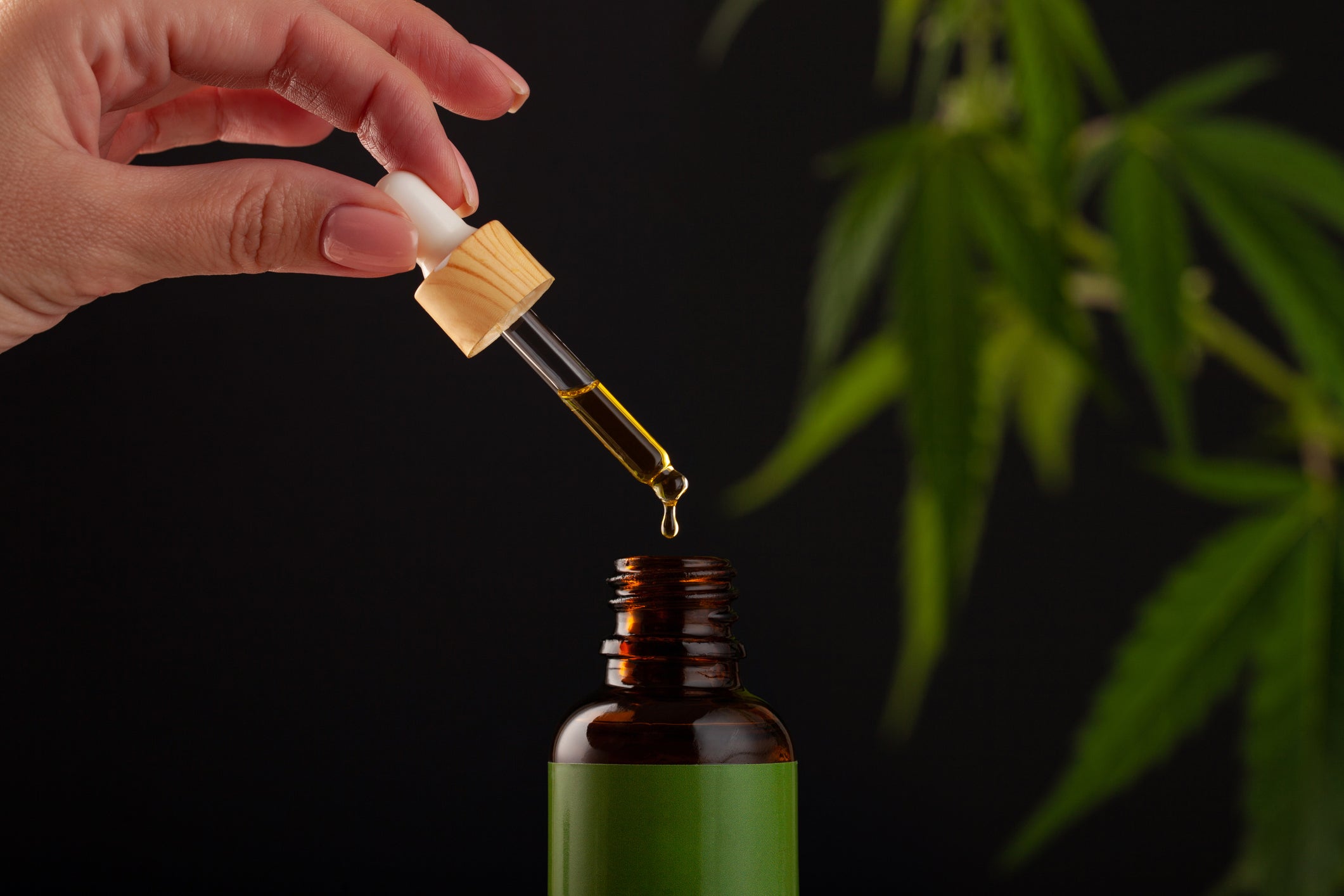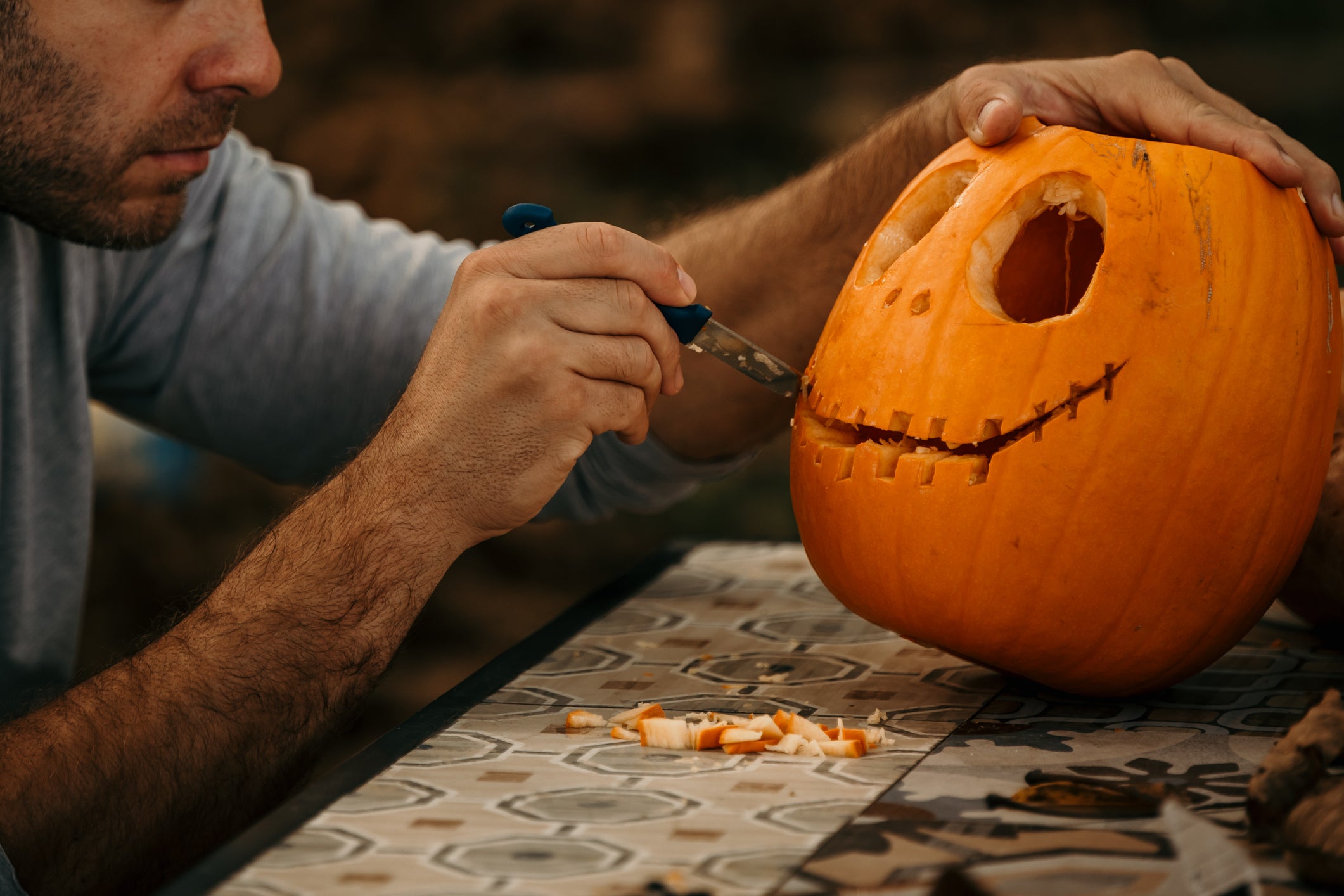How to make sure your carved Halloween pumpkins last as long as possible
How do you protect your pumpkin from bugs this Halloween? Kaleigh Werner asks experts the five best tips to make your pumpkin last
Your support helps us to tell the story
From reproductive rights to climate change to Big Tech, The Independent is on the ground when the story is developing. Whether it's investigating the financials of Elon Musk's pro-Trump PAC or producing our latest documentary, 'The A Word', which shines a light on the American women fighting for reproductive rights, we know how important it is to parse out the facts from the messaging.
At such a critical moment in US history, we need reporters on the ground. Your donation allows us to keep sending journalists to speak to both sides of the story.
The Independent is trusted by Americans across the entire political spectrum. And unlike many other quality news outlets, we choose not to lock Americans out of our reporting and analysis with paywalls. We believe quality journalism should be available to everyone, paid for by those who can afford it.
Your support makes all the difference.Halloween is right around the corner, but it’s no secret that carving pumpkins can be a huge hassle. Between extracting the seeds and making sharp, comical cutouts, the whole process can be exhausting and time-consuming. Although the final product may be perfect for All Hallows’ Eve, it’s not so fun when your pumpkin shrivels up after only a week of sitting on your doorstep.
For those who got a head start on their festive fall decor, your carved Jack-o-Lantern might no longer appear as spooky or sturdy as it once was.
Instead of an angry face with jagged teeth, your pumpkin may now look wide-eyed and open-mouthed, as if it was melted. Your pumpkin could also have holes or mold slowly growing on the outside, or chunks of it missing. In that case, it’s probably time to throw the whole pumpkin away until next Halloween.
To ensure your pumpkin doesn’t deflate or won’t be devoured by bugs, experts at Eflorist – one of the UK’s leading flower delivery services – and Better Homes and Gardens have recommended taking a few precautions.
Here are five tips to make your carved pumpkin last longer.
Pick the right pumpkin
According to the Eflorist professionals, the longevity of your carved pumpkin’s life depends heavily on its original state. The pumpkin you carve must be in good condition before you make any incisions.
“Make sure it doesn’t have any gouges, scrapes, or obvious blemishes. If it does, it’s not likely to last very long,” Eflorist experts said. “However, if your pumpkin has some green coloring to it, this means it’s still ripening, so it’ll be good to take home, and ripen there.”

What’s more, the pumpkin shouldn’t be “too soft.” You can test the texture of the pumpkin by flipping it upside down and applying pressure to the bottom. If the bottom “gives beneath your thumbs” even just a little bit, it’s too soft. The bottom should be sturdy and sit perfectly on any flat surface.
Use white vinegar solution and bleach
Once you’ve carved the perfect pumpkin, it’s time to clean it.
Better Homes and Gardens recommends bathing the pumpkin in a bleach bath consisting of 10 parts water and one part bleach. Small pumpkins should only be placed in the mixture for two minutes.
Eflorist suggests using a diluted white vinegar solution with 10 parts water and one part vinegar to preserve the inside. “Vinegar is acidic, which makes it a natural preservative. It also has naturally antibacterial properties, so it will help to kill off any nasties before you begin carving,” experts said.
After the initial cleaning, you should spray the pumpkin’s interior with the solution daily, ensuring the inside stays moist. If the inside of your pumpkin begins to dry out, the exterior will start to rot.
Use essential oils

“Much like the human skin, the flesh of the pumpkin acts as a protective layer, so as soon as you start carving into the skin, decomposition speeds up, which can attract flies,” Eflorist experts explained.
All the guts must be cleaned to deter pests from latching on or biting into the pumpkin. Sprinkling essential oils like peppermint and lemon after the inside is cleared can help keep them away, too. Drops of the oils can be added to the vinegar solution to spray the entire pumpkin every day.

Moisturize cut surfaces
Like any human cuts, you should use Vaseline or coconut oil to moisturize the incisions on your pumpkin. According to Better Homes and Gardens, oxidation occurs once the pumpkin is cut, causing it to dry out quickly. Vaseline “will act as a barrier,” protecting the cuts from drying quickly.
Find a dry and shaded spot
Finally, where you display your pumpkin could determine whether it lives a longer life. While your Jack-o-Lantern may add to your spooky outdoor decor, the decaying process will be expedited if your pumpkin is fully exposed to the elements. Too much moisture from the rain could also cause the pumpkin to develop mold or mush.
“Instead, you should place it in an as dry and shaded spot as possible – away from sun, wind, and rain,” Eflorist said. “For the best results, keep it close to the front door in a covered spot.”
Great spots to display your carved pumpkin include window sills and covered porches.

Join our commenting forum
Join thought-provoking conversations, follow other Independent readers and see their replies
Comments